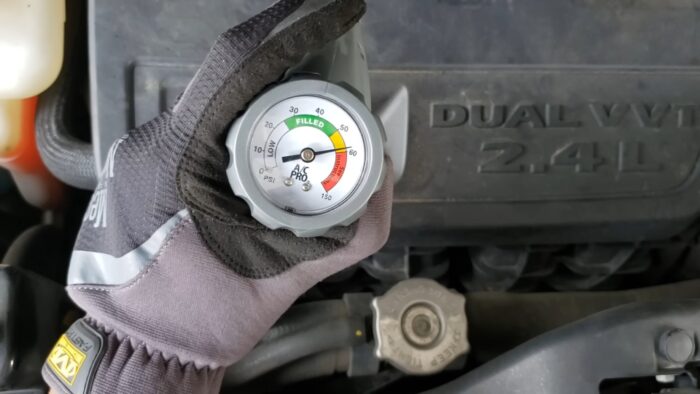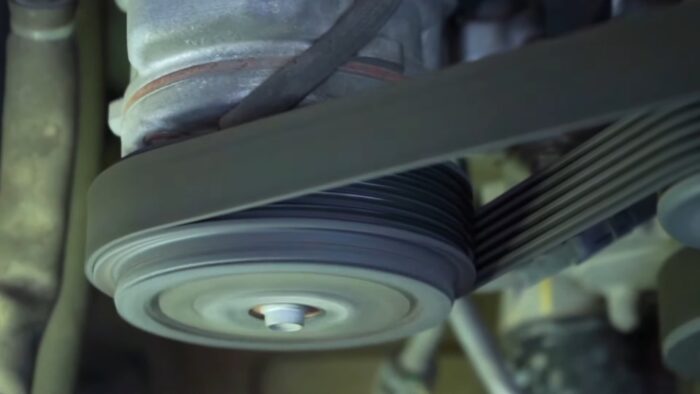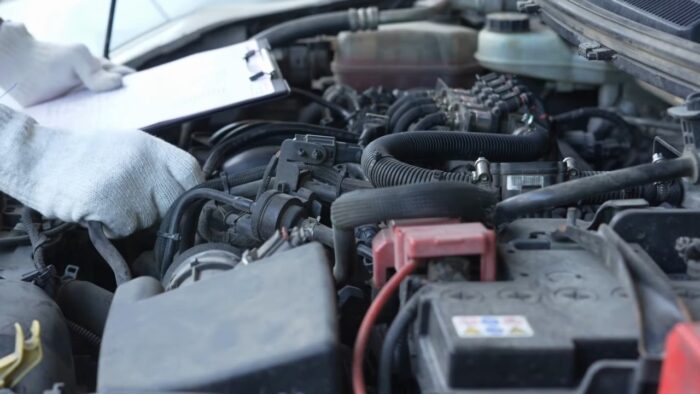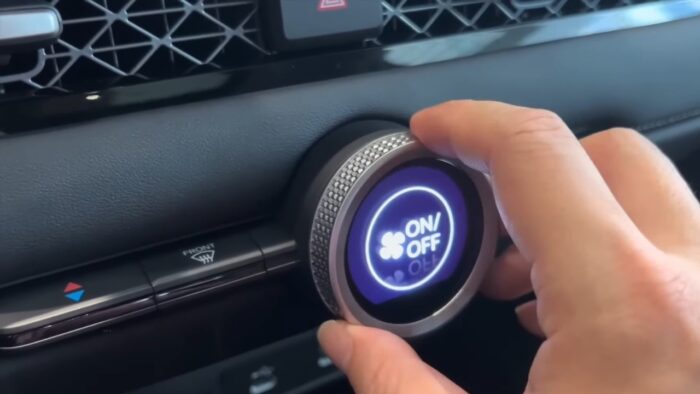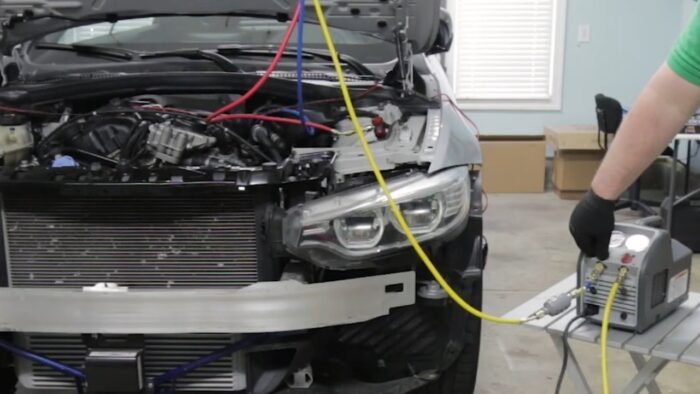Getting through scorching summer days in a car without an air conditioning system is almost unbearable these days. With hot summers like we had past several years, AC became an absolute necessity. However, if you charged it and the cooling is even worse than before, you might have overcharged it. Today we are going to talk about how to fix overcharged AC in cars and trucks.
Adding too much refrigerant can cause plenty of problems, and your air conditioning will definitely work poorly. Luckily there are some fixes that can be effective in this case, but they do require some special know-how to do so.
In this article, we will go in-depth on this subject and provide some efficient solutions. There is a lot to cover, so let us start without further ado.
Table of Contents
How Does AC Overcharge Happen?
Overcharge issues happen mostly during DIY refills with cans of air conditioning freon. The inaccurate pressure gauges often lead to system overpressure that can create a series of problems.
Another common reason for AC overcharges is when people add too much coolant following the “better safe than sorry” saying. Regardless of the reason, these overcharges happen more than you know, and some people are not even aware that something like this can happen.
Although DIY repairs can save you some money and, in some situations, even a bit of time, if you are not sure how to recharge your AC, the safest course of action would be to allow a licensed expert or mechanic to do it for you.
Symptoms of Overcharged Air Conditioning
Identifying the problem will save you a lot of hassle and prevent you from making everything worse than it actually is. In the section below, we have listed some of the most common symptoms of overcharged air conditioning.
1. Cooling Gets Weaker
One of the first and most obvious symptoms of overcharged air conditioning is a weaker cooling performance which you will notice almost immediately. The air coming out of the vents will not be cold enough to cool the interior of your vehicle, and the temperature will differ from the one you have set.
2. There Will Be No Airflow
AC will not engage immediately once you start the car, and you will have to wait for a bit for it to kick in. However, if nothing happens after several minutes and if the temperature does not cool off and there is no airflow from the vents, you should shut off the AC right away.
You should react immediately because no airflow is a sign that the system is overcharged to the point that something else in your car may fail, so shutting off the AC will reduce the chance of damaging something that might cost you a lot.
3. You Will Hear Noise
One of the common AC failures is when the compressor dies. This failure can complicate things further and rip the serpentine belt, which just leads to extra problems that are very expensive to repair. This is something that can be easily identified because you will hear the noise after you have refilled the coolant.
4. Frost Buildup
Adding too much refrigerant to your AC can cause frost buildups around the evaporator or lines. Your air conditioner might provide cold air at first, but the frost will eventually block the condenser from converting warm air to cold, which will result in warm air coming out of the vents.
5. Engine Overheat
Excess refrigerant can result in your engine overworking, which will eventually lead to overheating. If not attended to timely, engine overheating can lead to a series of problems that can ultimately cost a lot to fix.
How to Fix Overcharged AC
The only effective way to fix your overcharged AC is to depressurize the system, and the wisest course of action would be to take the car to a licensed mechanic that can do it by using specialized tools.
Mechanics typically charge for reducing the pressure almost the same amount as they do for filling it back up, which is between 100 and 250 USD, and that is the amount if nothing in the air conditioning system got damaged due to the overcharge.
The compressor costs around 1000 USD, and if it caused the serpentine belt to snap, the cost could go up to thousands of dollars.
Should You Try to Fix Overcharged AC on Your Own
Fixing stuff on your car can save you a lot of money in the long run if you possess the necessary know-how. However, when it comes to ACs, we strongly advise that you avoid fixing them on your own, as wrong moves in this repair can lead to a series of problems that will cost you a lot.
It is similar to opening up the engine block – unless you know exactly what you are doing, you can do much more damage than good. Just follow the simple logic – if you can buy a can of freon for 10 dollars, then why is the mechanic still in business when he charges 100 dollars for replacement?
The answer is very simple – they possess adequate knowledge of it and know the right amount of coolant necessary for your car.
Similarly, just as with AC repairs, tinkering with components like ARB Switch Actuators, which connect to the air compressor, requires a specialized understanding. Attempting DIY fixes without the right expertise may result in unintended consequences, potentially leading to costly issues.
Professional mechanics, equipped with the knowledge and tools, ensure that such intricate components are handled with precision to avoid any unnecessary expenses or complications.
They also possess compressors and gauges that are worth thousands of dollars and the right set of equipment to do this job properly without causing some damage that can end up being costly. So do not be cheap when it comes to mechanic’s fees in these situations; it will save you plenty of hassle and money in the long run.
How Often Do ACs Need to Be Recharged?
This entirely depends on how often you use the air conditioner in your car – the more you use it, the sooner it will require a recharge.
For example, if there were no leaks and if you live in a moderate climate area, your air conditioner will be able to operate on a single charge for two or three years. In case you live in a hotter area where temperatures are very high throughout the year, you will likely need to do recharges annually.
FAQ
Will AC Work if Overcharged?
If your AC unit is overcharged, it may work temporarily but it will eventually break down and not function properly. Overcharging can cause the compressor to overheat and fail, potentially resulting in a fire.
If you notice your AC unit isn’t cooling as well as it used to, or if it’s making strange noises, it might be time to have it checked out.
Why Is My AC Blowing Hot Air After Recharge?
A common problem with air conditioning units is that they can overheat after being recharged. The AC’s compressor may not be able to cool the unit as quickly as it used to, leading to overheating and eventual failure. There are a few causes of this problem:
- Dirty filters: Over time, dirt and dust can accumulate on the filters inside the AC unit. This can reduce airflow and cause the compressor to work harder than necessary, leading to overheating. It’s important to regularly clean your AC unit’s filters to ensure proper cooling.
- Defective fan: If the fan inside the AC unit is defective, it may not be able to create enough airflow to keep the unit cool. In this case, you’ll need to replace the AC unit altogether.
Additionally, a malfunctioning intake air temperature sensor can also impact the AC system’s efficiency by providing inaccurate temperature readings, potentially exacerbating overheating issues after a recharge. Regular maintenance, including checking and, if needed, replacing the sensor, is crucial for optimal performance.
How to Release Pressure from AC Compressor?
If your AC compressor is not releasing pressure, there are a few things you can do to try and release the pressure.
- Check to make sure the compressor is plugged into an outlet and that the voltage is correct.
- Make sure the hoses are connected properly – one end should be connected to the compressor and the other end should be connected to a cold water supply.
- Try turning off all of the equipment in the house that may be using electricity (HVAC, lights, appliances) and see if that makes a difference.
- If none of these solutions work, then you may have to call a technician to come take a look at your AC unit.
How Much Does It Cost to Fix an Overcharged Car AC?
The cost of correcting an overcharged AC unit can vary depending on the make and model of the car, but in general, it will range from around $100 to $200. Additionally, you may need to hire a technician to complete the repair, so expect to pay another $50 or so on top of that total.
What Causes High AC Pressure?
- High AC pressure high may be caused by various factors such as blocked air vents, faulty air conditioners, or dirty filters.
- Blocked air vents can occur when something blocks the vent from opening, such as a piece of furniture or a piece of paper.
- Faulty air conditioners may not be able to keep up with the demand for cooling and can overheat, leading to high AC pressure high.
- Dirty filters can cause increased amounts of dust and dirt to be released into the air conditioning system, which can increase the AC pressure high.
By addressing any of these issues, you may be able to reduce or eliminate the high AC pressure high.
Why Is My AC Still Not Cold After Recharge?
The most common problem is that the unit’s compressor is not running at full power. In order for the unit to work optimally, it needs enough power to move the air around quickly and effectively. Other common problems include blocked air filters or frozen evaporator coils.
How Long Does It Take for Refrigerant to Settle?
It can take anywhere from a few hours to a few days for refrigerant to settle depending on the type of gas and how much is in the container.
Final Words
When you notice the symptoms of overcharged AC, the wisest course of action would be to take your car to a specialized AC mechanic and fix the pressure situation.
There are numerous risks that come with DIY fixes to this problem, and it can lead to a set of issues that will punch a hole in your pockets. So do not experiment if you do not have the necessary knowledge, and hire a licensed professional to do it for you. While handling your car’s maintenance, similar care and consideration apply when upgrading tires for off-roading vehicles, ensuring safety and optimal performance in varying terrains.


